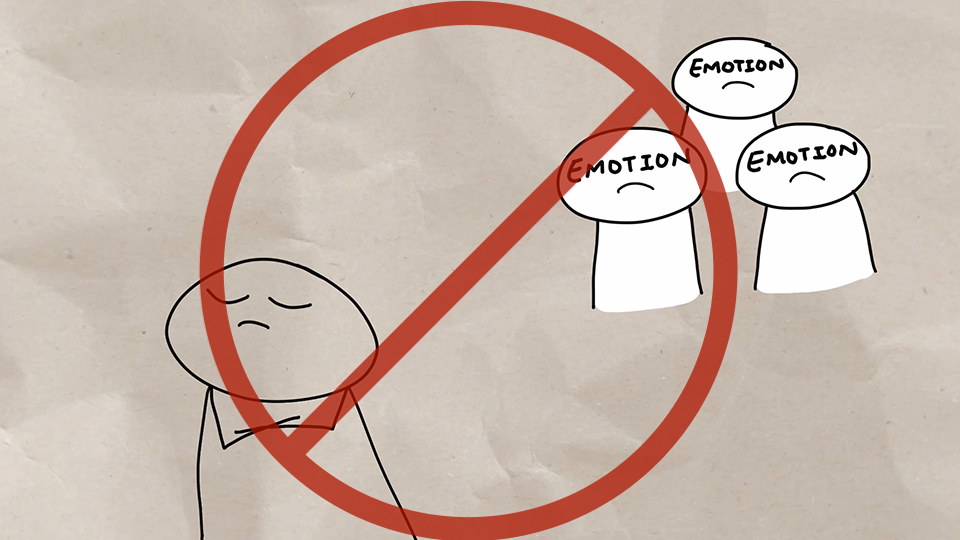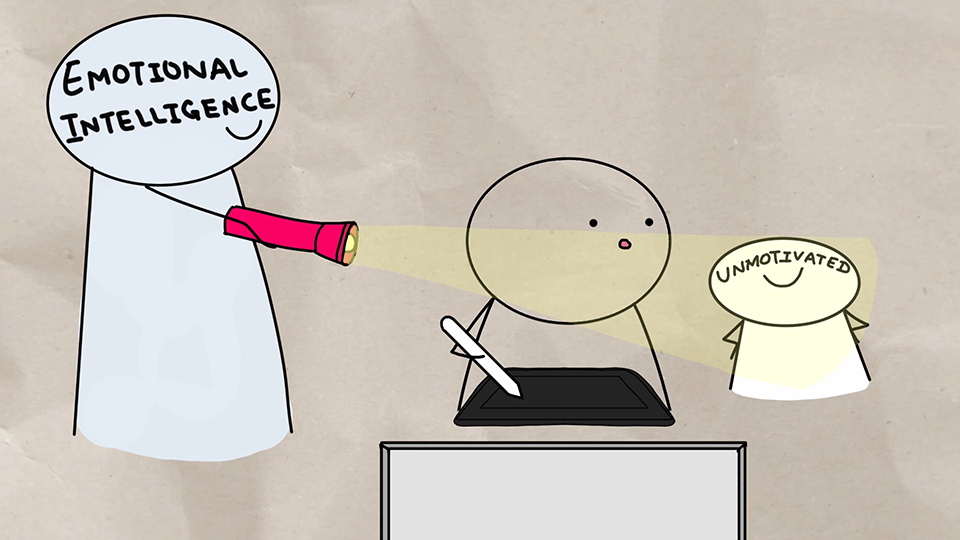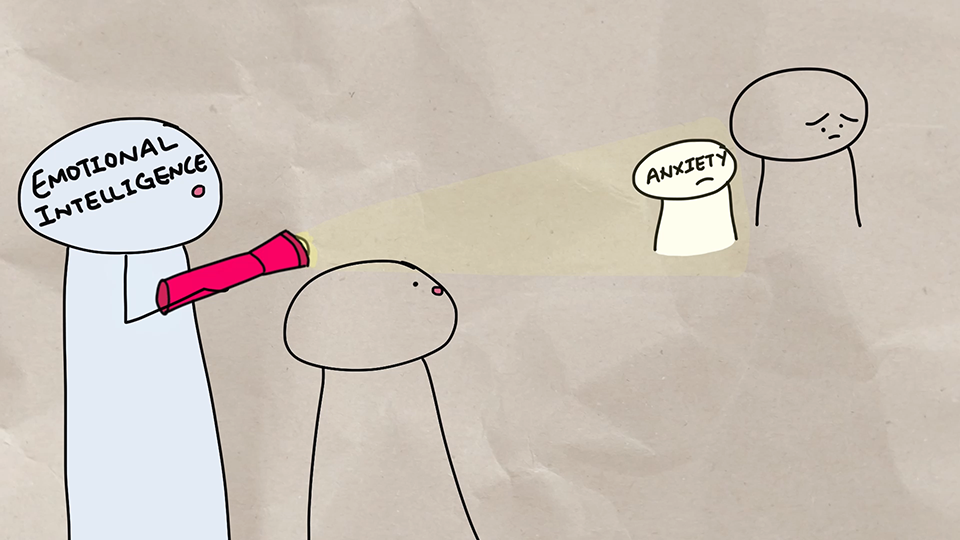Identify your emotions
Now that the team better understands the importance of emotions and EQ in a tech environment, you can explore emotions in more detail. In this unit, you'll learn how to identify your emotions, which is the first step in creating a plan to work with and manage them. You'll also explore the importance of EQ and examine its impact in a team setting.
Explore the importance of identifying your emotions
Developing your EQ is crucial for success in learning, career, and other endeavors. When you're feeling anxious or overwhelmed, it's easy to ignore your emotions and wait for the situation to change. However, you can't develop your EQ by disregarding how you feel. Remember from the video: Developing your EQ isn't about ignoring your emotions. It's about acknowledging and working with them.

Take steps to identify your emotions
When you're faced with a challenge, it's important to take a short break, recalibrate, acknowledge your feelings, and then create a plan. To start the process of identifying your emotions and working through a challenge, you can:
- Practice being aware of your emotions. Remember that it's sometimes easier to ignore what you're feeling and try to focus on your tasks, but with practice, you can get better at acknowledging your emotions.
- Recognize that you're feeling emotions, even if you can't name them. Sometimes, your emotions can be complicated, and you might not know what to name them. If so, you can try telling yourself something like, "I feel like I won't meet the deadline" or "I feel unmotivated." What you name your emotions isn't as important as acknowledging and identifying their presence.
- After acknowledging and identifying your emotions, you can think of the steps you need to take to solve the problem. You can think about the best ways to proceed, the tools you need, and the people that you can approach for help.
Remember from the video: Tuning in to your emotions is just as important as working on the technology itself.

Explore the importance of EQ
Your EQ plays a vital role in your success. Empathy and social awareness are foundations for effective communication. Technical skill is important, but to be effective in the workplace or at school, you need to be a good listener who takes the time to understand what your peers are telling you. You need to be aware of your emotions, especially when you're feeling impatient or frustrated. Another crucial skill is your ability to read cues from people around you. Are they frustrated, anxious, or feeling out of place? By exercising your EQ, you can observe things from their perspectives and work with them to solve issues.
Important
Just like your technical skills, you can improve your EQ through practice.
Examine the impact of EQ
EQ has a significant impact on your interactions with your teammates and the overall success of the team. Even if your team is technically skilled, low EQ can damage morale. It can make team members anxious and reduce their sense of belonging. Conversely, high EQ helps the team collaborate better, be supportive of each other, and achieve goals.
For example, suppose you're working with your team to debug an app. There are several issues with the code, and the team only has a couple of days to fix all the bugs and release the app. Two of your teammates are arguing about a section of code, which has some major flaws. They're more interested in blaming each other for the issues than fixing the code. Person A tells Person B, "I told you that your logic was flawed, and the code would fail!" Person B retaliates with, "You don't know what you're talking about. My code was flawless. You messed it up."
Consider how much more fruitful this exchange would be if your teammates approached the situation with high EQ. They could take time to identify their emotions and recognize that they feel anxious, defensive, and disheartened by the number of bugs. They could then work together to come up with a plan of action. Which bugs should they resolve first? Do they need help from someone else on the team? Should they create a schedule to map out the timeline for resolving some bugs to leave them extra time to tackle unexpected issues?

Notice how productive the following exchange is:
Participant A: "We have quite a few bugs to tackle, but we'll get it done. I'm glad I get to work on this project with you. We'll have fun, as always! It might be a good idea to work on the Severity 4 bugs first. It will make it easier as we work our way toward the complex bugs. What do you think?"
Participant B: "That's a great idea, and our fixes on the lower-severity bugs might result in changes that lessen the work we need to put in on the more complex ones. I'm nervous, but by supporting each other, we can think of some creative ways to fix this faster. Hopefully, we'll then have enough time to run a few more test cases to make sure the code is working perfectly."
Notice how your teammates exercised their EQ to:
- Identify their emotions.
- Acknowledge the other person's perspective.
- Create a plan to fix the problem.
- Start working on the solution.
They used their EQ to pause and notice their teammate's emotions and anxiety. By changing their internal dialogue and how they communicated with each other, they were able to set aside their frustration and stop blaming each other. Your teammates could then collaborate in a positive and respectful manner, trust each other, and work toward their common goal.